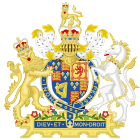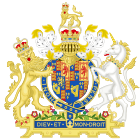Commissioners of Scotland Yard facts for kids
| Act of Parliament | |

|
|
| Long title | An Act for repairing the High wayes and Sewers and for paving and keeping clean of the Streets in and about the Cities of London & Westminster and for reforming of Annoyances and Disorders in the Streets of and places adjacent to the said Cities and for the Regulating and Licensing of [Hackney] Coaches and for the enlarging of several strait & inconvenient Streets and Passages. |
|---|---|
| Citation | 14 Cha. 2. c. 2
|
Quick facts for kids Dates |
|
| Royal assent | 2 May 1662 |
| Commencement | 7 January 1662 |
| Expired | 13 March 1679 |
| Repealed | 30 July 1948 |
| Other legislation | |
| Repealed by | Statute Law Revision Act 1948 |
| Relates to | London Streets, etc. Act 1690 |
|
Status: Repealed
|
|
| Text of statute as originally enacted | |
| London Streets, etc. Act 1690 | |
|---|---|
| Act of Parliament | |

|
|
| Long title | All Act for Paveing and Cleansing the Streets in the Cityes of London and Westminster and Suburbs and Liberties thereof and Out-Parishes in the County of Midlesex and in the Burrough of Southwarke and other places within the Weekly Bills of Mortality in the County of Surrey and for Regulating the Markets therein mentioned. |
| Citation | 2 Will. & Mar. Sess. 2. c. 8 |
| Dates | |
| Royal assent | 20 December 1690 |
| Other legislation | |
| Repealed by | Statute Law Revision Act 1948 |
| Relates to | 14 Cha. 2. c. 2 |
|
Status: Repealed
|
|
| Text of statute as originally enacted | |
The Commissioners of Scotland Yard was a group of people in charge of keeping the streets of London, Westminster, and Southwark tidy and organized. They were also known as the Commissioners for the Streets and Wayes. This group was created in 1662 by an Act of Parliament in England. Their main job was to manage traffic and make sure the streets were in good condition.
The commissioners' office was located in Scotland Yard, which was also where the King's Surveyor of Works had his office. The 1662 Act that created them was only in effect until 1679.
Contents
What the Commissioners Did
The 1662 Act gave the King the power to choose up to 21 commissioners. These commissioners had several important responsibilities to improve the cities:
Street Management and Repair
- Checking Buildings: They could decide if buildings were sticking out too far onto the street.
- Fixing Roads: They managed the repair and paving of important streets, like Pall Mall.
- Making Streets Wider: They could make certain streets wider, such as St Martins Lane. This sometimes meant tearing down existing buildings, but they had to pay the owners fairly.
- Collecting Money: To pay for all this work, they could collect money from each homeowner.
Traffic and Transport Rules
- Licensing Taxis: They were in charge of giving licenses to hackney carriages (which were like early taxis). They also set the maximum prices these taxis could charge.
- Taxing Hay and Straw: They collected a tax on hay and straw sold in the city streets.
Keeping the City Clean
The Act also introduced rules to keep the streets clean and tidy.
- Sweeping Rules: Everyone in London, Westminster, Southwark, and nearby areas had to sweep the area in front of their house every Wednesday and Saturday. This was to stop people from throwing coal ashes and other rubbish into the street.
- Noise Rules: The Act also stopped people from making too much noise in the streets. For example, they couldn't hoop barrels or saw large pieces of wood in public.
- Rubbish Collection: People called "rakers and scavengers" were responsible for collecting rubbish. They had to make a loud noise, like ringing a bell, to let people know they were coming. This way, residents could bring out their ashes, dust, dirt, and other waste for collection.
- Collection Fees: These scavengers were chosen based on old customs. Within 20 days, church leaders and other parish officials had to set the prices for rubbish collection, which people paid every three months.
Lighting the Streets
To make the streets safer at night, the Act had a special rule for lighting.
- Candles and Lanterns: From September 29th (Michaelmas) to March 25th (Lady Day), every homeowner had to place a candle or lantern outside their house. This light was needed from dusk until 9 p.m. to help people see when they were walking by.
Sewer Improvements
The Act also confirmed a decision made earlier, in 1661, to build two new sewers. These sewers were important for draining water from the area near the Palace of Whitehall.
After the Great Fire
In 1666, the Great Fire of London destroyed much of the city. After the fire, new laws were made to help rebuild London. These new laws gave the power to manage paving and sewers inside the city only to the City of London's own government. This meant the Scotland Yard Commissioners could only work in areas outside the main city.
The 1662 Act was meant to last until the first session of the next Parliament. When that happened in 1679, the Act was allowed to end.
The 1690 Act
In 1690, a new Act of Parliament was passed. This Act brought back similar rules for cleanliness in the areas around London. However, it did not bring back the Commissioners of Scotland Yard. Instead, the power to make sure people followed these rules was given to local justices of the peace. The job of managing sewers in Westminster was given to an existing group called the Westminster and Middlesex Commission of Sewers.
Who Were the Commissioners?
Besides the 21 commissioners chosen by the King, other important people automatically became commissioners. These included:
- The Lord Mayor, Recorder, and Aldermen of the City of London.
- The Dean, High Steward, Deputy Steward, and two High Burgesses of the City of Westminster.
Some famous people were among the first commissioners, like Charles Sackville, 6th Earl of Dorset and the writer John Evelyn. John Evelyn even said that his fellow commissioners were "divers gentlemen of quality" (many important gentlemen). Several members of Parliament were also commissioners, including John Ashburnham and John Denham.
The commissioners could hire a treasurer and other staff to help them. They also had to report their yearly financial accounts to the Court of Exchequer during the summer legal term.

